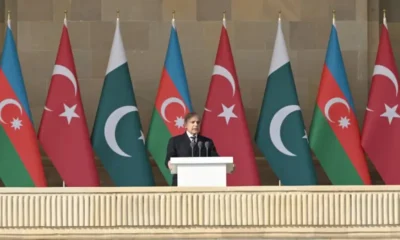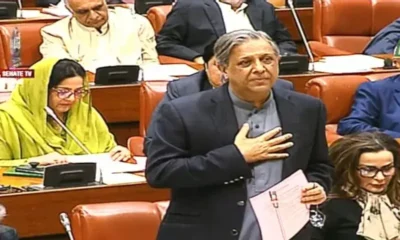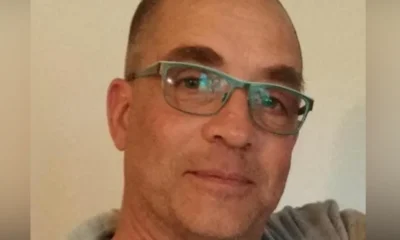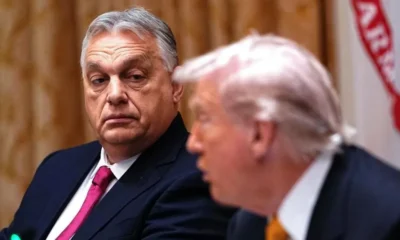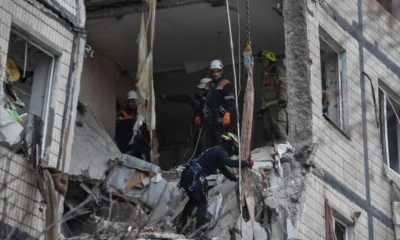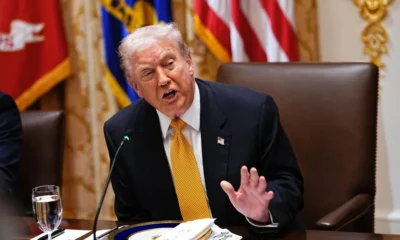Pakistan News
At Balochistan grand jirga, PM stresses need to win back ‘misled’ people

Prime Minister Shehbaz Sharif on Saturday said that people who were “misled” by terrorists in Balochistan must be brought back on board, stressing the need for resolving issues through dialogue.
The security situation in Balochistan has worsened in recent months, as militants, long involved in a low-level insurgency, have stepped up the frequency and intensity of their attacks. The outlawed Balochistan Liberation Army, in particular, has adopted new tactics to inflict higher casualties and directly target Pakistani security forces.
Last month, ISPR Director General Lt Gen Ahmed Sharif Chaudhry accused India of activating its “assets” to intensify terrorist attacks in Pakistan, presenting “irrefutable evidence” of Indian state-sponsored terrorism, directed by the Indian military personnel.
Speaking at the Balochistan Grand Jirga in Quetta, PM Shehbaz said, “The terrorists [in Balochistan] must not be tolerated by the public, government or armed forces.
“We must make efforts to bring back the people who were misled [by the terrorists] onto the wrong track.”
He added that economic or social injustices cannot happen in Balochistan during his rule and stressed collectively solving the issues through talks.
“If there are any concerns, brothers need to sit together to solve those issues,” he emphasised. “The blood-thirsty terrorists who are against Pakistan’s success and welfare must be stopped. I want to ask what the gaps [there] are that we can fill with your suggestions [to solve problems].”
Balochistan to receive Rs250bn development budget
The premier also announced that Balochistan will receive Rs250 billion in development funds from the federal budget.
He said, “In the upcoming budget, the federal-funded Public Sector Development Programme (PSDP) for provinces and [the] federation will be Rs1 trillion in total. Balochistan will get Rs250bn, which is 25 per cent of the total PSDP.”
He added, “To me, even that seems like a small amount.
“Whether it is Gwadar, Pasni, Chaman, Qila Saifullah, Quetta, Jhal Magsi or any other place, every penny of these resources must be honestly utilised for the public’s welfare.”
The premier also highlighted past development projects in the province, such as the Rs70bn solar initiative for farmers and the N-25 Highway.
Last month, PM Shehbaz announced that instead of passing on the relief of reduced oil prices in the international market to consumers, the government would use the saved money for the reconstruction of the N-25 Highway and completion of Phase-II of the Kachhi Canal project in Balochistan.
Addressing the event today, he further said, “In 2010, Punjab gave Rs11bn in NFC to Balochistan [and] that would be around Rs155-160bn today. But for the sake of national unity, even Rs1600 billion would not be too much.”
“The vastness of Balochistan demands greater investment,” he added.
Pakistan ‘flying high’ militarily, economically
Earlier on Saturday, the PM said that Pakistan was “flying high” off the back of its victory in a military conflict against India and economic progress made since he took office as prime minister.
The comments, made during an address at the Quetta Command and Staff College, followed a recent military confrontation between India and Pakistan over New Delhi’s allegations against Islamabad, without evidence, about a deadly attack in occupied Kashmir’s Pahalgam.
New Delhi, based on the allegations, launched a series of air strikes in Pakistan in early May, killing civilians. Islamabad retaliated by downing five Indian jets. It took American intervention on May 10 for both sides to finally reach a ceasefire.
https://www.dawn.com/news/card/1906274
India, however, is still weaponising the Indus Waters Treaty (IWT) — a water distribution deal between the two countries — saying that it will no longer abide by the treaty, placing the agreement in “abeyance”.
In his address today, PM Shehbaz congratulated the military personnel in attendance on their counter-operations against India. He said these operations had left New Delhi “completely baffled and shell-shocked”.
“We won a war against an enemy, which in the eyes of our detractors was unthinkable, but we have converted this unthinkable into a reality, and I think that is our finest hour in history,” he stated. “Pakistan at this point in time is flying high.”
PM Shehbaz noted that the conflict with India was not only victorious, but illustrated that the threats Pakistan faces are no longer restricted to conventional battlefields.
“They [threats] are multifaceted, ranging from kinetic warfare to cyber attacks, economic coercion, disinformation campaigns and hybrid threats that challenge both our borders and ideological frontiers,” he elaborated.
“The recent Indian aggression … was not only countered successfully, but we turned the tables on those who tried to establish a new normal,” he added. “Indian leaders had no option but to concoct a patently false explanation for their losses. Operation Bunyanum Marsoos destroyed the enemy’s defences and shattered the myth of their military might.”
The PM highlighted that Pakistan “established a new norm” in its relations with India, warning that the country will never let its neighbour “behave in an arrogant and haughty manner”. He also reiterated that Pakistan would not allow India to continue weaponising the IWT, calling it a “red line”.
“We need to convert this moment into something this nation has been longing for — that Pakistan’s progress … would not only be witnessed [and] enjoyed by [the people], but that the world at large would respect Pakistan’s hard work,” he added.
‘Sacrifice, blood and sweat’
Noting Pakistan’s victory on the battlefield, the prime minister said that the country “faces major challenges” on the economic front.
Highlighting economic difficulties during his tenure in 2022, Shehbaz said, “International banks were refusing our letters of credit for vital imports like energy … linked to Pakistan’s wellbeing”, and the country faced the threat of international lending agencies walking away.
“As a result of that meeting in Paris in July 2023, we were able to sign a standby agreement with the IMF, which averted an impending economic meltdown,” the PM said.
He added that upon assuming office in 2024, his administration “wasted no time” implementing major reforms and making “cast-iron guarantees to lending agencies”.
“We would not shy away from undertaking difficult, tough, but very relevant, deep-rooted changes in our system,” he said. “We undertook those very difficult decisions and we were able to calm those fears of our lending partners. Today, we are witnessing the fruits of those sacrifices made by the common man in Pakistan.”
According to the PM, inflation plummeted from 38 per cent to 0.3pc, while interest rates were halved from 22.5pc in 2022 to 11pc.
“Our rupee stands stable [and] forex reserves have crossed over a billion dollars,” he said.
“These achievements, significant as they are, represent only the beginning of a very arduous, difficult, thorny journey towards progress and prosperity. On the way, we will meet huge challenges like mountains, rivers — we will have to surmount them [and] cross those rivers through unwavering commitment to our nation and our people, and that will require sacrifices, sweat and blood,” he emphasised.
Pakistan News
PM Shehbaz again thanks Trump for ‘bold and decisive leadership’ in brokering Pak-India ceasefire

Prime Minister Shehbaz Sharif on Saturday, once again, thanked the “bold and decisive leadership” of US President Donald Trump for brokering a ceasefire between Pakistan and India during the conflict between the two nuclear neighbours in May.
While addressing Azerbaijan’s Victory Day parade in Baku, the premier praised President Trump’s exemplary leadership, which led to the success of the peace efforts.
“It was President Trump’s, bold and decisive leadership, that brought about, the ceasefire, between Pakistan and India, restoring peace in South Asia — averting a major war, and saving millions of people.”
In his speech, the PM reiterated that Pakistan, “just like their Azerbaijani and Turkish brothers”, seeks peace, adding that no one can ever be allowed to challenge its sovereignty or undermine its territorial integrity.
The premier recalled that the Azerbaijani and Turkish military contingents had “proudly” marched alongside the Pakistani armed forces in Islamabad amid tremendous applause on August 14 this year, when they celebrated ‘Marka-i-Haq’ to commemorate their “historic victory” in the four-day war with India.
The Pakistan Army had named the period of conflict with India from the April 22 Pahalgam attack to the May 10 conclusion of Operation Bunyanum Marsoos as “Marka-i-Haq” in May.
PM Shehbaz highlighted how, five years ago, “the courageous sons of Azerbaijan, under the bold and visionary leadership of President Ilham Aliyev, rose to respond to the call of history”.
“The world witnessed in awe as Azerbaijan’s brave armed forces liberated their ancestral lands of majestic Karabakh,” the PM stated. “Throughout this entire struggle for liberation, Pakistan stood like a rock with its brotherly country Azerbaijan.”
According to PM Shehbaz, Azerbaijan’s victory in Karabakh was a “glorious vindication” of a just cause and a beacon of hope for all nations striving for sovereignty and self-determination, including the brave and resilient people of Gaza and Indian Illegally Occupied Jammu and Kashmir.
The prime minister arrived in Baku on Friday for a two-day official visit to Azerbaijan at Aliyev’s invitation and to attend the country’s Victory Day ceremony.
Referring to the recent flare up with the Afghan Taliban regime, the prime minister said that their common resolve for peace has most recently been tested in the case of Afghanistan and expressed gratitude to President Recep Tayyip Erdogan as well as to Emir of Qatar Sheikh Tamim bin Hamad Al Thani for their “invaluable contribution” in facilitating, the peace efforts, between Pakistan and Afghanistan.
“This is a true reflection of the strong and time-tested fraternal ties between our countries that stand together, through thick and thin,“ he opined.
Victory Day is observed to “commemorate the historic victory in the 44-day-long Karabakh Liberation War against Armenia”, according to the PM’s Office.
Pakistan News
Bill for 27th Constitutional Amendment tabled in Senate after federal cabinet’s approval

Shortly after getting approval from the federal cabinet, the bill for the 27th Constitutional Amendment was tabled before the Senate on Saturday and subsequently referred to the standing committees on law and justice.
A joint session of both the NA and Senate standing committees on law and justice was then summoned to discuss the amendment.
However, during the session of the standing committees, two Jamiat Ulema-i-Islam-Fazl (JUI-F) members, Aliya Kamran and Senator Kamran Murtaza, boycotted the meeting and said the proposed draft included amendments that were discarded in the 26th Amendment bill.
Following deliberations on the proposed amendment, the law committees of both Houses adjourned the moot till Sunday.
‘Discussions will continue till consensus is reached’
Law Minister Azam Nazeer Tarar, speaking to the media after the adjournment of the committees, said all parties were participating in the session and they had also “requested the opposition to participate”.
“Aliya Kamran had informed us that they have instructions from their party not to attend the session; however, all other parties were in attendance. We even asked the opposition to be a part of the session.”
Tarar said the “long-awaited” proposed amendment has been in discussion for the last 10-15 years. “Even today we are having a constructive debate on the matter.”
“At the time of the 18th Amendment, it was on the constitutional agenda, and even earlier, during the 26th Amendment, but due to certain reasons, one of which was Maulana Fazlur Rehman’s suggestion that such a major change should not be made and that it would be better to move towards transition and form constitutional benches,” said Tarar.
The law minister elaborated that the formation of the benches increased the workload of the judiciary, as the same judges were hearing cases fixed for the bench and otherwise.
“The objective was to ensure that the cases fixed in the Supreme Court are not delayed further and the common man gets relief.”
Tarar added that one of the aims of the proposed changes is also to do away with the criticism of a “court within a court”. “All members have reviewed it (proposed constitutional amendment) and we have completed arguments on around 60pc of the clauses.”
The law minister said a few questions have been raised by some members, clarifying that they are legal in nature and “not fundamental issues”.
“We will reconvene again tomorrow morning at 11am and continue our discussions. And till the time we do not reach a consensus, from all members of both Houses, the discussions will continue,” said the law minister.
The Senate and standing committee sessions will resume on Sunday, November 9.
Farooq H. Naek said no decision has been reached yet after deliberations on the proposed constitutional amendment, and claimed around 80pc of the bill was discussed.
He added that certain “mistakes” in the draft will be corrected and the law ministry has been made aware.
When asked about changes to Article 243, he said it was not discussed during today’s session.
Tarar tables bill in Senate
The bill, which was tabled in the Senate by the law minister, proposed the formation of a Federal Constitutional Court, changes in the process for appointing high court judges, changes to the threshold for provincial cabinets, and changes to the military leadership structure.
At the outset of the session, Tarar — who had earlier in the day briefed the media on some features of the proposed legislation after the federal cabinet meeting — requested the suspension of the question hour and other house business so he could brief lawmakers on the amendment.
The law minister then moved the bill before the upper house, with Chairman Yousuf Raza Gillani referring it to the National Assembly and Senate standing committees on law and justice for review and consideration. He said that both committees may hold joint meetings for a detailed review and consideration, and the report would be presented before the House.
Pakistan News
PTI, Imran should ‘take a step back’; govt should create space for engagement: Fawad

Former PTI leader Fawad Chaudhry said on Monday that both the government and the PTI, along with Imran Khan, need to show flexibility in order to create space for engagement to decrease the political friction in the country.
Fawad is one of the three former PTI leaders who say they have been engaging with the party’s incarcerated leadership to put an end to politics of confrontation as part of their political outreach initiative.
They also visited PTI leader Shah Mahmood Qureshi, after he was taken to a hospital in Lahore from prison, on Thursday, to convince him to join their campaign.
“I’ve said this from the first day, the government should move one step forward and the PTI and Imran Khan should move back one step so space is created,” said the former PTI leader while speaking during an interview on DawnNewsTV show ‘News Wise’.
He maintained that both sides would have to decide on the need to bring down the temperature, warning that if the PTI did not pursue engagement and talks, it would face similar treatment as the disbanding and ban on the proscribed Tehreek-i-Labbaik Pakistan.
“The government needs this, because whatever international successes they have gained are not translating into Pakistan … so both sides need the temperature to come down. We think the leaders of Lahore should play the role of a pivot and take this forward.”
Chaudhry added that the immediate need was to lower the political temperature, saying talks could not proceed if both sides could not even bear to see each other.
Defending his former party’s obstinacy against engagement in talks, he said it was also due to the behaviour of the government, which had made a policy of “crushing and sidelining” the opposition.
“The two ruling parties, the establishment and the PTI, are the four big players and the political temperature between them should come down. How will that happen? …you will have to give the leadership in Lahore’s jail the chance to talk to Imran Khan.”
He further said that the establishment and the government needed to decide whether the country needed a reduction in political temperature or not. “I am very hopeful they have this view too.”
Referring to the group’s recent activities, Chaudhry said they had a meeting of at least 45 minutes with Qureshi.
He added that the proposal being carried by the group was not even their own, instead pointing to a letter by incarcerated PTI leaders in Lahore earlier this year, which called for a reduction in political friction and encouraged engagement.
Chaudhry was not without criticism for the government, saying it had backed the PTI into a corner. “If you don’t engage with the PTI, the only way forward it has is to protest,” he said.
The former federal minister added that in such a situation, the PTI could lead a protest to Islamabad and resign from the National Assembly, while the government would attempt to impose governor’s rule in Khyber Pakhtunkhwa, which would be resisted by the party.
“Another event like November 26, 2024, will happen, and as a result of this, the tensions and political temperature in Pakistan will increase. The problem right now is that, we the people, living in Pakistan are being severely impacted by this,” he said, adding that the group had requested the incarcerated PTI leaders in Lahore that if there was no implementation of their earlier recommendation, it would lead to great loss for both the party and the government.
He also said the fact that the group was allowed to meet the incarcerated PTI leadership in Kot Lakpat jail was an encouraging sign.
“Senior government ministers called me and appreciated the effort,” he said, pointing to Information Minister Attaullah Tarar’s welcoming of the development in particular.
“Senior PTI leadership also called and said that this is the only way.”
-

 Europe News8 months ago
Europe News8 months agoChaos and unproven theories surround Tates’ release from Romania
-

 American News8 months ago
American News8 months agoTrump Expels Zelensky from the White House
-

 American News8 months ago
American News8 months agoTrump expands exemptions from Canada and Mexico tariffs
-

 American News8 months ago
American News8 months agoZelensky bruised but upbeat after diplomatic whirlwind
-

 Art & Culture8 months ago
Art & Culture8 months agoThe Indian film showing the bride’s ‘humiliation’ in arranged marriage
-

 Art & Culture8 months ago
Art & Culture8 months agoInternational Agriculture Exhibition held in Paris
-

 Politics8 months ago
Politics8 months agoUS cuts send South Africa’s HIV treatment ‘off a cliff’
-

 Politics8 months ago
Politics8 months agoWorst violence in Syria since Assad fall as dozens killed in clashes


